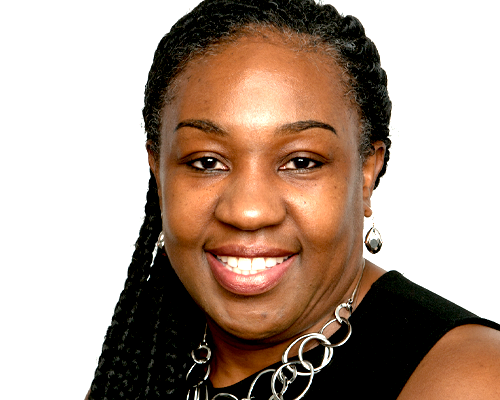Dr Pameleta Ricketts is HCPC-registered occupational therapist, the HCPC's first Council Apprentice and Lead Allied Health Professional in a large Community NHS Foundation Trust
Pam chairs a divisional equality, diversity and inclusion (EDI) committee and has won two consecutive Values in Practice awards in recognition of her contribution to race equality and commitment to inclusivity.
For Black History Month 2024, Pam shares her experience, her thoughts on discrimination and her key take-aways.

What I'm going to be sharing are some reflections based on my own experiences, whether that’s as a professional in work, or just experiences as a manager.
So, for myself, I've haven't always felt that my chances in terms of progression have been wholly fair. I often describe it as the good, the bad and the ugly. Sometimes when I'm speaking to people, they'll say maybe you should say 'indifferent' - but actually sometimes it has been really quite ugly.
I have experienced discrimination. I have experienced harassment, I've experienced bullying. I've experienced racism. And going through that hasn't been pleasant.
Sometimes it's very difficult to deal with. What can you do? How do you escalate it? Sometimes it's far easier to be silent, but over the years I've learnt that actually from silence I'm complicit.
I think if we're going to really tackle inequalities, we really have to be honest about what is happening on a day-to-day basis.
We really need to focus on some of the experiences that some will have - and I'm not saying it's all - but we need to focus on that. Because if we are going to progress and we're going to improve, then we need to really focus on actually what has gone wrong. What can we do about it, what can we learn from that to take things forward, to really make people's working lives more, more satisfying and more fulfilling?
We have the HCPC standards to abide by, so we need to make sure we follow those. If we see that actually there are issues there, then we do need to flag that and address that. We have to remember: we're going out to see patients. We don't want patients to experience any negativity.
Diversity isn't something to be feared. Embrace it, ensure that our service users and carers are treated with respect and dignity.
Likewise, treat colleagues with dignity and respect. If there's something that you don't know, then respectfully ask a question, be curious, listen with fascination. And actually in doing that, you're educating, you're supporting and you're informing. And that can only be for good.
Challenge inappropriate behaviours and really take that zero tolerance approach to racism, discrimination, bullying and harassment of any kind.
I think it's really important that as professionals, as HCPC registrants, that we recognise and act. So if we see that something isn't right, don't be silent. It is something that we do need to address. If we want to improve the health of our nation and we want to give people the best health chances, then we need to make sure that on a professional level, we do what we need to do.
What the HCPC standards say
The HCPC's standards of conduct, performance and ethics set out, in general terms, how HCPC registrants are expected to behave. Revisions to these standards came into effect in September 2024, following a consultation that received feedback from a wide range of stakeholders.
A key theme in the consultation feedback, which was consequently carried through to the revisions, was equality, diversity and inclusion (EDI). The changes clarify expectations around issues such as challenging discrimination, empowering service users and maintaining professional boundaries.
Focusing on challenging discrimination, the revised standards say:
1.5 You must treat people fairly and be aware of the potential impact that your personal values, biases and beliefs may have on the care, treatment or other services that you provide to service users and carers, and in your interactions with colleagues.
1.6 You must take action to ensure that your personal values, biases and beliefs do not lead you to discriminate against service users, carers or colleagues. Your personal values, biases and beliefs must not detrimentally impact the care, treatment or other services that you provide.
1.7 You must raise concerns about colleagues if you think that they are treating people unfairly, that their personal values, biases and beliefs have led them to discriminate against service users, carers or colleagues, or if they have detrimentally impacted the care, treatment or other services that they provide. This should be done following the relevant procedures within your practice and should maintain the safety of all involved.
You can read more about the background to this theme and the HCPC's expectations of registrants below.

